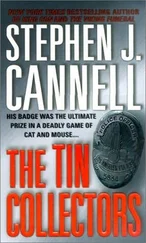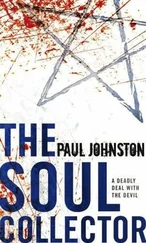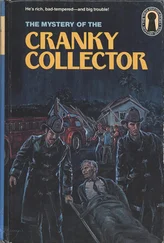“Look at this.” Andrey walked over to a bookshelf and pulled out one thin volume. St. Theodora’s Journey. He opened the fridge. “It’s switched off, but it’s definitely the right size,” he said, and pulled out something that looked like an aquarium.
“What is that?” Masha asked, her voice trembling, still not getting up off her bucket.
“Maybe some kind of incubator?” Andrey turned the glass box over carefully in his hands. “To hold—”
“Ants.” Masha finished his sentence in a whisper. “Let’s get out of here!”
Andrey picked up a metal-tipped whip, and put it down again.
“Yeah. Let’s go,” he said. “I’ve seen enough.”
He had raised his hand to turn off the light when Masha stood up and called, “Wait!”
Trying not to look around, she marched across the room and, in one quick swipe, ripped the map with the red pins off the wall. It rolled up in her hands.
“Now let’s go,” she said. But halfway up the stairs, she couldn’t resist looking back at the black hole where the secret hideout had been. So that’s where you were, she told herself. Heavenly Jerusalem. Right here in this dark basement, for Nick-Nick—her Nick-Nick!—the light had shone down from on high and the angels had sung in chorus. Oh my God… She stumbled up the last few steps, ran out of the house, leaned over the railing of the porch, and threw up. Then Masha sat on the steps for a long while, gasping in the frosty air, while Andrey kept an arm wrapped around her shoulders, trying to fend off the trembling that wracked her body.
When they got in the car, Masha had almost stopped shaking. She looked silently at the map rolled up in her lap. Andrey called Petrovka and told them to send some forensics experts out to the dacha. He decided to leave the front door, and the entrance to the cellar, wide open. He also asked Fomin to stop by and see if Katyshev was in his office. He turned out not to be, and he wasn’t answering his phone. Masha called his home number. Irina answered and said her husband wasn’t at home. After a pause, she asked, “And how’s your mom?”
So Masha got stuck updating Irina on her mother’s progress and her own, trying hard not to ask any sort of question that might tip her off. She listened submissively to Irina’s worried advice. (“You need to get more rest, Mashenka! At least eight hours of sleep a night, try some mint tea or chamomile.”) It was enough to make Masha think that she, and the whole world, had finally lost their minds. Masha made herself glance in the rearview mirror at the forest disappearing behind them in the early dusk. There was only one person she knew who was crazy—though of course he must not think so.
When their conversation was wrapping up, Masha asked casually, “Do you two go to your dacha much anymore?”
For a second, she thought the call might have been disconnected. But then Irina answered, her voice sad.
“You know, we never go at all anymore. He doesn’t have the time, and it’s no fun when it’s just me. And Nikolay says the house is falling apart, and he never gets around to fixing it up, because he spends all his energy bringing his bad guys to justice.” She laughed, awkwardly, and Masha shuddered at what an apt description that was.
“Well, Mashenka! Tell your mother I said hello, and get well soon,” Irina said, and they hung up.
“So,” said Andrey, “that means Katyshev isn’t anywhere. Do you think he knows we’ve fingered him?”
“I don’t know,” said Masha. “But I think so,” she added, more confidently.
Andrey gave her a worried look. “If he knows we’re on his trail, he might try to run.”
Masha shook her head. “No. If he knows we’re on his trail, he’ll try to finish what he set out to do.”
“Are you sure?” asked Andrey, glancing over at her.
Masha laughed sadly. “Positive. I know Nick-Nick. He’s very conscientious.”
He still had time. He had done the calculations many times over. He didn’t trust taking the car—there could always be a traffic jam—and he didn’t feel like going underground to take the metro. Instead, he walked the Boulevard Ring Road, and when it came down to it, he had earned this walk.
He wore an old Mackintosh-type raincoat, frayed at the wrists. His wife had fixed up the lining more than once, but she couldn’t do anything about the fraying. He loved this old jacket though, loved even the disrepair it was in. The raincoat lived his life with him from the start of fall until it got cold enough for a wool coat, then again from midspring to summer. And he always preferred these middle seasons to the winter cold or the intense summer heat. Between seasons, when the sun shone gently and the air was wet and carried a stronger smell of gasoline, it was easier for him to believe what his heart could see. What he saw now were not the cars flashing by, the tacky billboards, the sordid advertisements, or the current of people flowing past him, none of whom even noticed the man in the decrepit old raincoat and scuffed shoes, the man with the face that looked tired of life.
No, he had become invisible even to himself, like the changeable air in those times between the seasons, and he could see the urban landscape around him changing as well. The walls of Bely Gorod rose up, the walls Boris Godunov had called Tsargrad, the white rock emerging to conceal the river of filthy garbage below. Above the walls there was only the sky, the same as it had been in 1593, when Fyodor Kon finished the construction, and the Khan and his marauders rode right up to the fortress walls and left again empty-handed. He smiled cunningly, as if he himself were sitting under that pyramid of a roof and watching the Tatar horde retreat into the distance.
He had almost reached his second-to-last stop: an enormous C -shaped building with three wings just off the Boulevard Ring. One wing had an exit onto Znamenka Street, the “Street of the Sign.” He thought he’d walk along that street, too, afterward. Then he’d get to see two small churches before him, through the advancing dusk, as if they had never been demolished: the Church of St. Nicholas the Wonderworker, with its three domes and bell tower, where they had built a garish new chapel, and the Church of the Sign of the Holy Mother, where now there was nothing but a playground. He’d need only half an hour to do his work, and then he’d take a leisurely walk to Borovitskaya Square, and from there, on to the waterfront.
He showed his ID at the desk and they handed him a pass. MMMD, the pass read. Main Military Medical Directorate of the Ministry of Defense of the Russian Federation. The corner of the little card featured a complicated emblem: the traditional serpent, wrapped around a chalice. And there was something inside the cup. A dagger? A mortar? Oak branches on each side, an eagle posed above it, a red cross below. My, oh my! He chuckled. Such ridiculous heraldry.
He knocked at the door. The secretary had already left, as he had anticipated, and he walked in, welcomed by a low, rumbling voice. Leontiev even stood up to greet him. There was a certain apprehension in his eyes. Clearly, he wondered what the prosecutor might want from him. But in the end, you don’t turn down meetings with people like Herr Prosecutor, even after you’ve worked your way into a directorship, into a vast office with a view of the Kremlin. They shook hands, and then Leontiev sat down in his leather chair at the end of a long table, polished till it gleamed like ice. He gestured with one broad hand that his visitor should have a seat, too.
“I’ve heard of you, of course!” he boomed, taking a look at the man in the old raincoat. “To what do I owe the pleasure?”
Читать дальше












